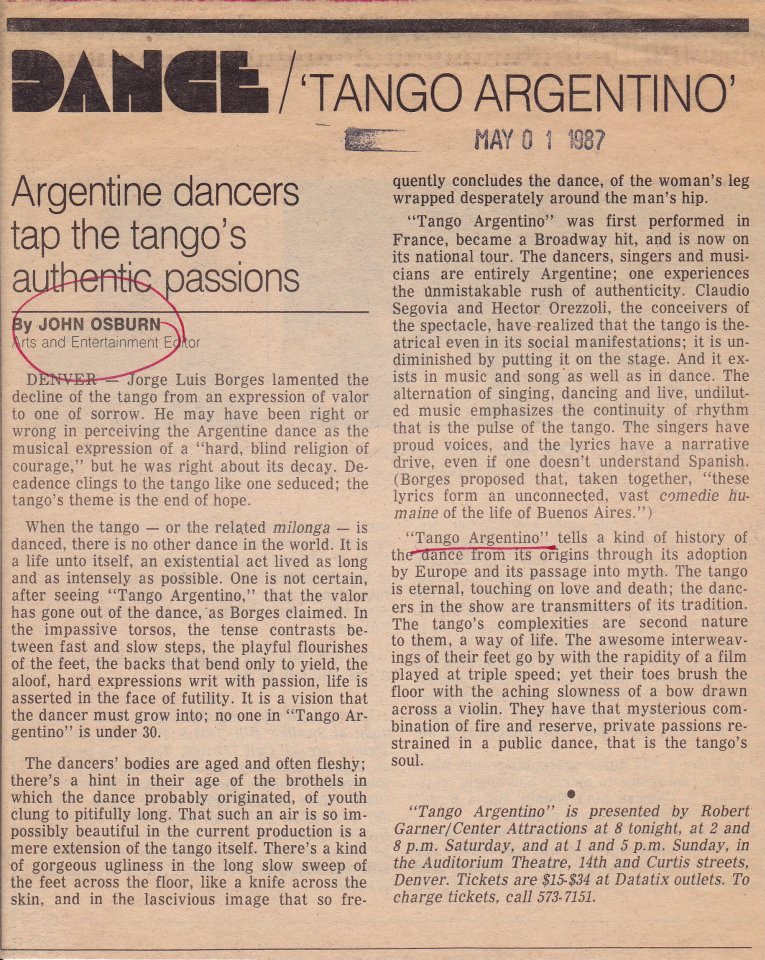This – the article reproduced above – is what I thought of tango long before I started to dance it socially and engage with its history and culture on a deeper and more personal level. I have wanted to track down this clipping, from the Boulder Daily Camera, without knowing where it was that I had stashed it, and of course it turned up quite unexpectedly the other day when I was tidying up some old files. TANGO ARGENTINO is now known as a seminal show in the history of tango, credited in almost every account as having prompted the international resurgence of the dance. So I have often wondered just what I said about it at the time, although I did recall cribbing some ideas from Borges, using the phrase “gorgeous ugliness” (riffing on a description I once saw of Kurt Weill’s music), and positing that the tango’s theme was “the end of hope” (which I inaccurately remembered as “the death of hope”).
Reading my words, I don’t find myself disagreeing with my former self, although I would write more knowledgeably on the dance moves and would be able to understand the lyrics. Given that so many dancers and singers whom I now know to be tango luminaries were involved, I wish I had commented on some of them by name, especially as I have no idea which ones were on the tour that landed the show in Denver. The claim that tango arose in brothels I now know to be controversial: more myth than reality, according to some scholars, albeit a potent and enduring one. But do I still think tango is quintessentially decadent and about the end of hope?
Yes, I more or less do, and think it no accident that it resurged at the end of both a century and a millennium. Yet as we know from the art of the last fin de siècle, beauty and joy are as much a part of decadence as sadness or loss, and I would probably say something along those lines if I were writing about the show today. And hope, perhaps, does not need to be over to have the aching quality I was getting at – it is by definition a desire for something that is not, so maybe it was the absence of the thing hoped for that I sensed rather than of hope itself. On the other hand, the show, and the dance, meant what they meant then, and the terrible history that had all too recently unfolded in Argentina might have had something to do with the frisson of despair that I sensed in the production, and which I feel a little bit of today, rereading what I had to say.
For production information on TANGO ARGENTINO, click here.

One response to “Tango Argentino (Revisited)”
[…] or the West End, then Broadway itself, most famously as choreographer of the Parisian import Tango Argentino in 1983. She was, in the patriarchy in which they flourished, his muse, or, as he puts in in the […]